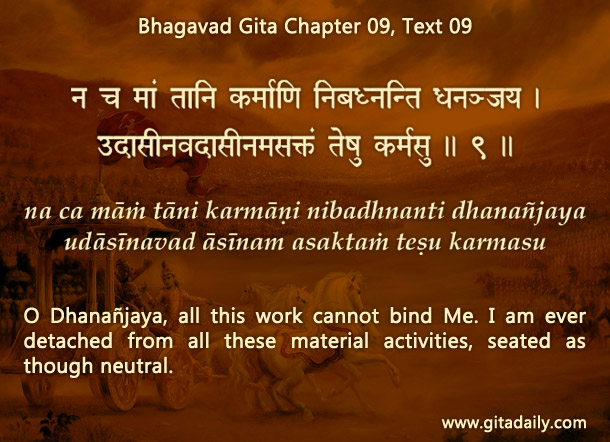Suppose a person robs a bank, and is apprehended by the police and convicted by a judge. In that robber’s going to the jail, all three play a role – the judge, the police and the robber himself. The judge gave the verdict based on which the police incarcerated the robber. Still, the judge is not the cause of the verdict; the robber’s misdeed is.
Similarly, in the operation of cosmic justice, three factors are involved: material nature, Krishna and we ourselves. Suppose we do a misdeed and get some misfortune as a reaction. In this case, we are like the robber; material nature is like the police; and Krishna in his manifestation as the indwelling Supersoul is like the judge. The Gita points to these three factors in various verses. It initially focuses on material nature: things are done by nature through its modes (03.27). Then it highlights the magisterial role of the Supreme: Material nature works under his supervision (09.10), while he is situated as if detached from its actions (09.09). Eventually, it spotlights the incriminating role of the soul in its entanglement: due to its desire to enjoy matter, the soul undergoes good and bad in material existence (13.22). Lest people ignorantly blame God for the reactions that come upon them as just karmic dues of their actions, the Gita (05.15) categorically stresses that he is not responsible for anyone’s right or wrong actions.
By accepting responsibility for our actions and their concomitant reactions, we can take the initiative to act auspiciously. The most auspicious form of action is devotional action meant for serving Krishna. Just as a law-abiding citizen is not penalized but is protected by the judge, so too are devotees protected by Krishna as they progress towards supreme liberation.
To know more about this verse, please click on the image
Explanation of article:
Podcast:

